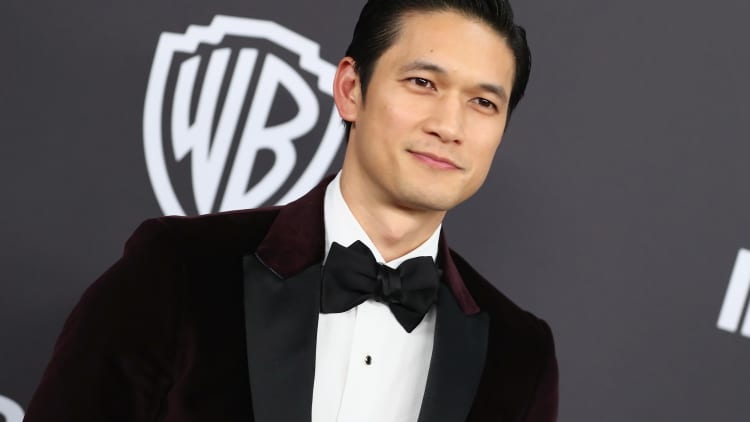Andrew Mok, 34, has heard his share of racist slights. At workplaces early in his career, for instance, he'd hear, "Oh, you and that other Asian coworker, I can't tell you guys apart. You all look the same," he says.
In the moment he'd laugh it off but looking back, he realizes, "that made me feel kind of small."
Mok's parents immigrated to the U.S. from Taiwan in the '70s and he grew up in the Bay Area in California and attended the University of California, Berkeley, before pursuing a career in the startup world. Mok's been working at Turo, the Airbnb of car rentals, since 2012, now serving as its chief marketing officer.
Mok has spent the last few years reflecting on what it means for him to be Asian American both at work and at large. Here's how his attitude about his identity has changed over time and why he thinks Asian Americans should be more vocal about their experience.
'We just need to keep our head down'
Growing up, Mok felt he had to hide his Asian identity. "Asian American culture is really to not talk about being Asian," he says, adding that, "we just need to keep our head down. We just need to work hard."
As a kid, for example, his mom would pack him Chinese food for lunch "and the kids would be like, 'Oh, that's smelly,' or, 'Oh, that looks gross,'" he says. He went home and told his mom, "I don't want Chinese food anymore. I want only American food." So she started packing him Campbell's chicken noodle soup to take to school instead.
Even as an adult, "I would go out of my way previously to almost ignore the fact that I was Asian," he says. But especially in the wake of the Black Lives Matter movement, his attitude has changed. He's realized it's important to celebrate uniqueness and highlight difference.
"We need to realize that it's a special experience growing up as a first generation Asian American," he says. "It's something to be proud of and it's something to educate people about."
'It goes a long way when people demonstrate a genuine curiosity'
To that end, Mok would encourage fellow Asian Americans to share their stories.
"I have this thing, like, hardwired in me to feel uncomfortable talking about" being Asian, he says, adding that, "I have to challenge myself to be like, 'No, say something.'" When he does, the feedback's always been positive.
He gives the example of sharing a story about a colleague's grandmother being the victim of an Asian hate crime in San Francisco in their company Slack. "It opened the floodgates and it allowed people to feel comfortable sharing" their own like stories, he says.
But it's not just on the Asian American community to talk, he says. It's also everyone outside of the community's job to make them feel comfortable doing so. "It goes a long way when people demonstrate a genuine curiosity and interest about that side of my culture," he says.
He'd also challenge people to learn what the different communities within the Asian world are. "Recognizing and appreciating the many different countries and heritages that are specific to each individual — Korean, Indian, Japanese, Taiwanese, etc. — also plays a big role in helping people feel welcome."
Ultimately, he says, it's about "more awareness and more empathy."
DON'T MISS: Want to be smarter and more successful with your money, work & life? Sign up for our new newsletter!
Check out:
How a 32-year-old earning $230,000 a year in Washington, D.C. spends her money



